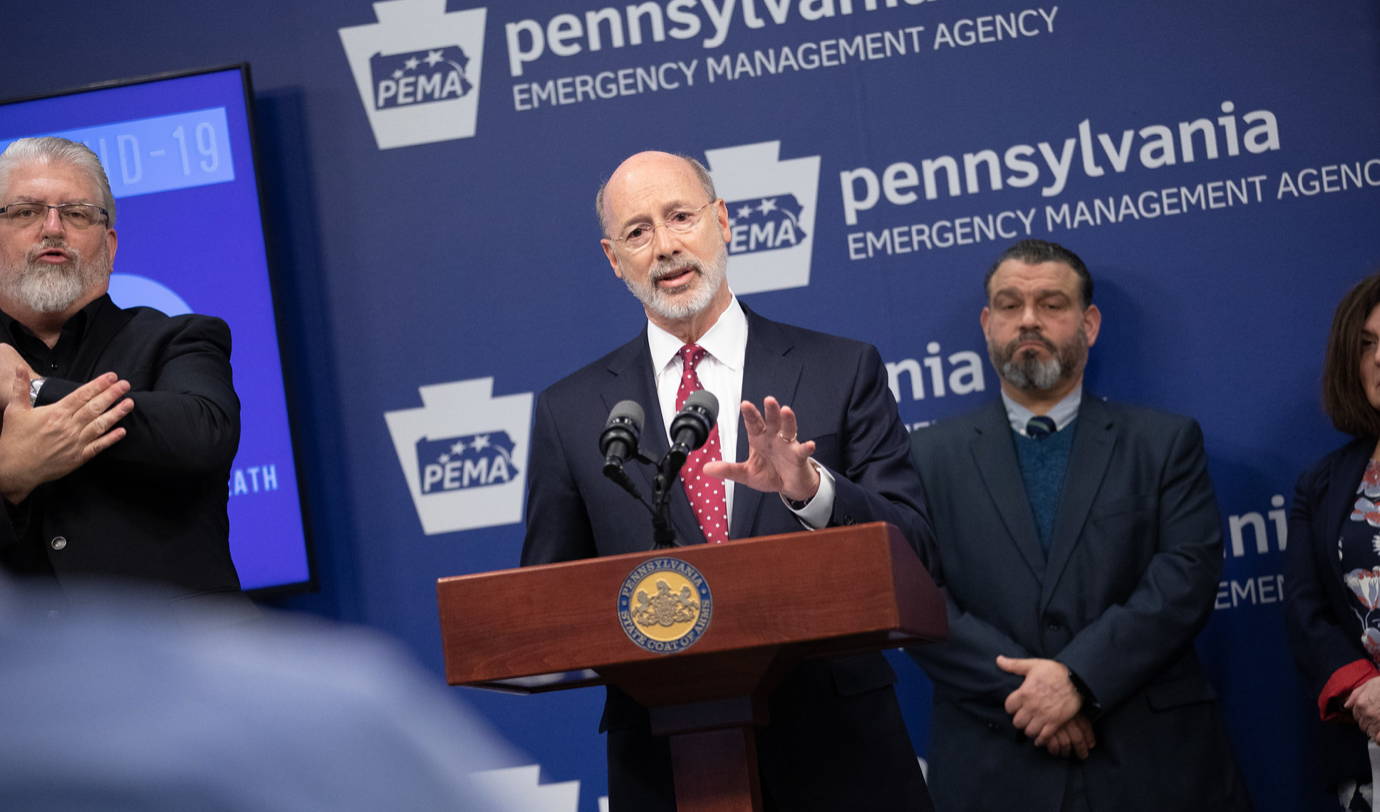In a stunning defeat for the Democratic governor, a federal judge ruled Monday that major elements of Gov. Tom Wolf’s lockdown order violated the Constitution.
“The manner in which Defendants, through their policy team, designed, implemented, and administered the business closures is shockingly arbitrary,” Judge William S. Stickman, a Trump appointee, wrote in his ruling.
“The Court declares, therefore, that the stay-at-home components of Defendants’ orders were and are unconstitutional,” he wrote. “Broad population-wide lockdowns are such a dramatic inversion of the concept of liberty in a free society as to be nearly presumptively unconstitutional unless the government can truly demonstrate that they burden no more liberty than is reasonably necessary to achieve an important government end.”
The lawsuit was filed in early May by members of both the private and public sector. A handful of counties mainly in the southwest and northwest portions of the state joined several state representatives and businesses to challenge the governor’s unilateral actions.
In particular, Stickman found fault with the fact that the administration had a poor definition of the terms “life-sustaining” and “non-life-sustaining” when applying those labels to which businesses could stay open and which had to close.
The ruling is a significant setback for the governor, and in many cases directly affirms many of the arguments Republicans in Harrisburg have been making once the crisis began to mature.
“We’ve been saying all along that what the governor is doing is unconstitutional, that he has an obligation to work side-by-side with the legislature, which he has failed to do,” Republican State Rep. Steve Barrar (Chester/Delaware) told Delaware Valley Journal.
Barrar, who is not seeking re-election this year, has been particularly critical of the way the governor has reauthorized the emergencies, thereby extending executive powers.
“Courts are generally willing to give temporary deference to temporary measures aimed at remedying a fleeting crisis,” Stickman wrote. “But that deference can not go on forever. It is no longer March. It is now September and the record makes clear that [the governor has] no anticipated end-date to their emergency interventions.”
“Sen. Mike Reagan (R-Cumberland/York) and myself made almost the exact same comments one week before the second renewal of the emergency declaration,” Barrar said upon hearing that portion of the Stickman ruling.
The governor’s handling of the COVID-19 pandemic, particularly his treatment of businesses, has long been a contentious issue between Wolf and the GOP legislature. In April, Republicans voted to open an investigation into what they claimed was the governor’s selective distribution of waivers to businesses exempting them from the lockdown.
“We basically challenged the way Wolf was governing unilaterally, without the consent of the legislature,” Barrar said. “And that’s basically what this is saying, that the governor has a feeling that he can just do whatever he wants without any checks and balances, and of course that action is unconstitutional. It’s great to see that the courts stood by what we’ve been saying the last 90 days or so.”
Lyndsay Kensinger, spokeswoman for Wolf, said they will appeal.
“The actions taken by the administration were mirrored by governors across the country and saved, and continue to save lives in the absence of federal action,” Kensinger told Delaware Valley Journal. “This decision is especially worrying as Pennsylvania and the rest of the country are likely to face a challenging time with the possible resurgence of COVID-19 and the flu in the fall and winter.”
“This ruling does not impact any of the other mitigation orders currently in place including, but not limited to the targeted mitigation orders announced in July, mandatory telework, mandatory mask order, worker safety order, and the building safety order,” Kensinger said.

